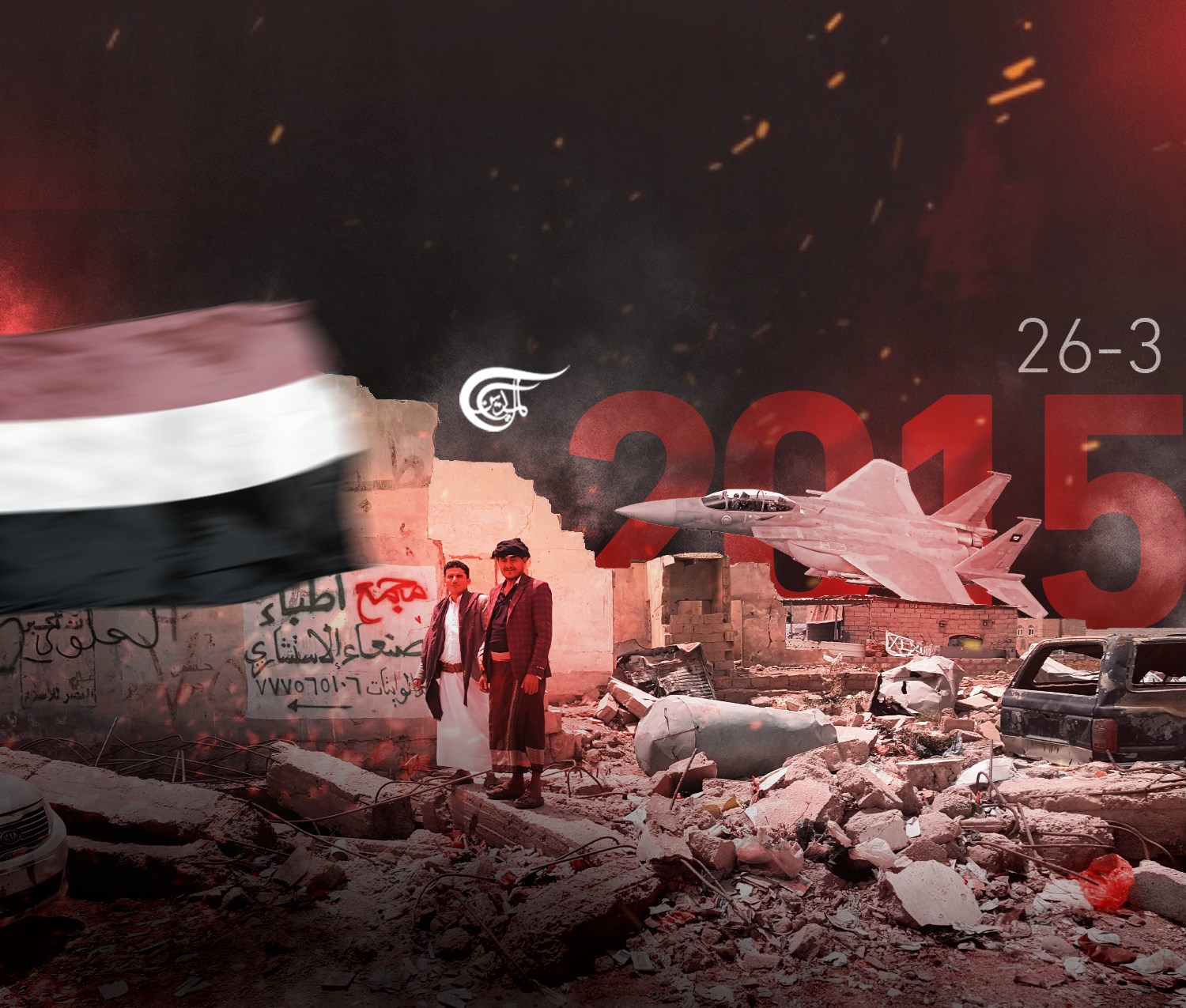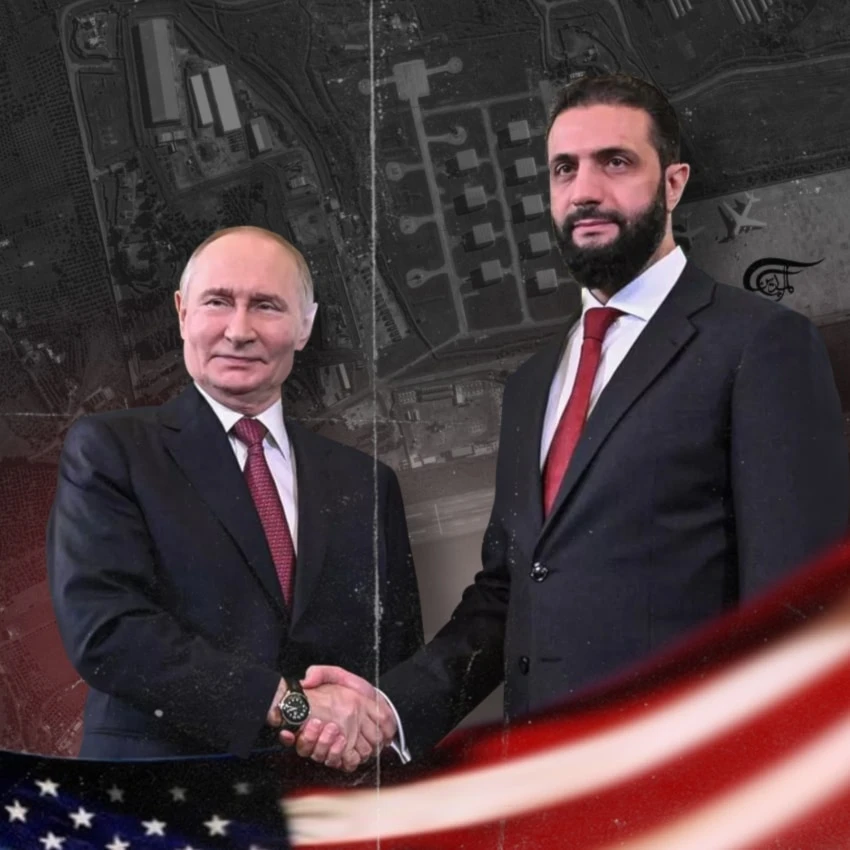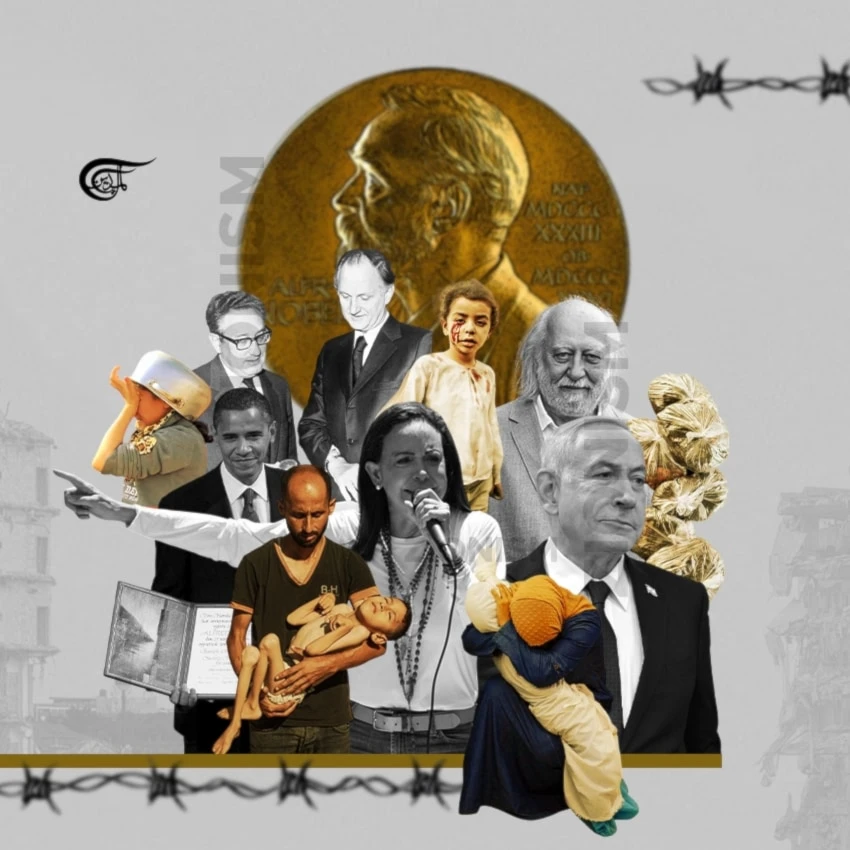'We lost everything': Survivors of the Saudi led-coalition strikes remember the first day of bombing, seven years ago
Survivors and relatives of martyrs speak about the first airstrikes of the Saudi-led coalition on the seventh anniversary of the Saudi war on Yemen on March 26, which is marked as the day of resistance.
-

On this day, seven years ago
It was just past 1 am, on March 26, 2015, when the Saudi-led coalition launched two missiles targeting the house of Ahmed Al-Hadhrami in the densely populated neighborhood of Bani Hawat, in the north of the capital, Sanaa, killing 32-year-old Ahmed along with 20 other civilians, in the first US-backed Saudi strike against Yemen.
“The strikes demolished our home, shops, and the taxi I own”, said Mohammed Al-Hadhrami, brother of Ahmed, who was in Ibb Governorate during the invasion. “Ahmed’s wife and his two sons were not at the same place, so his sons survived, but his wife was killed."
-

Ahmed Al-Hadhrami along with his children (Exclusive)
“We lost everything. We lost our brother, our house, and our source of income”, Mohammed told Al Mayadeen English in a phone call.
Saudi Arabia and the United Arab Emirates launched a military campaign on March 26, 2015, claiming that it was at the request of the outgoing President Abdrabbuh Mansur Hadi and that the primary goal of the campaign was to restore Hadi to power in Sanaa.
Hadi and his Prime Minister resigned in January 2015, creating a power vacuum. This situation forced Ansar Allah to announce a "constitutional declaration", appointing a revolutionary committee in February 2015 to lead a “new era” with a two-year transition.
However, Hadi fled the capital Sanaa to the southern province of Aden in February 2015 and announced he was still the president. Then, suicide bombers hit two mosques in Sanaa on March 20, 2015, killing over 130 worshippers, forcing Ansar Allah to send troops to southern Yemen and crush al-Qaida and ISIS bases.
Hadi fled Aden to Saudi Arabia on March 25 to avoid arrest. Hadi arrived in Saudi Arabia on the second day, in the evening, and he was warmly welcomed by Mohammed Bin Salman in person at the airport.
In an interview, Hadi said he “didn't know about the Saudi military intervention, except in the same morning of March 26, as he was traveling all night of March 26; although the Americans had already asserted that "no one will intervene." This declaration was a clear alibi that the Saudi strike wasn’t on Hadi’s request.
'Painful and sad day'
Saudi ambassador to the United States, Adel Al-Jubair, announced in a statement from Washington on March 26 that his country has launched "military operations in Yemen, as part of a coalition of over ten countries in response to a direct request from the legitimate government of Yemen".
"The operation will be limited in nature and designed to protect the people of Yemen," Al-Jubair said in the statement. However, the first strikes were targeting civilians. Ahmed Al-Hadhrami residency and six other houses suffered from severe common damage.
“It was a painful and sad day”, said Ali Al-Hatemi, Ahmed Al-Hadhrami’s friend and neighbor. “It was the worst day ever because I had been meeting my neighbor daily. The last neighbor I saw was Ahmed Al-Hadhrami; it was at 11 pm. That’s two hours before the strikes that killed him."
"Suddenly, at around 1 am, I found Ahmed and other neighbors along with their women and children trapped under rubble," Al-Hatemi told Al Mayadeen English.
-

Leader of Bani Hewat neighborhood, Faiz Al-Sewat, left, stands with his friend on the rubble of Ahmed Al-Hadhrami's house (Exclusive)
The leader of the neighborhood Faiz Al-Sewat told Al Mayadeen English that Ahmed Al-Hadhrami and 20 other people were killed in the strike including children and women. There is no exact toll for those injured so far.
“I was shocked to find my friend Ahmed Al-Hadhrami martyred," said Al-Hatemi, standing on the rubble of Al-Hadhrami’s house. He added no one survived from Al-Moalim family of eight persons that was preparing for a wedding party next week.
“The family of Al-Habashi lost three sons, but the father survived, and Al-Jermozi family lost 9," he added.
This was the first strike reported in Yemen before the nearby Sanaa International Airport was targeted. Al-Hatemi house still has wall cracks from the strikes.
The United States announced on March 26 that it is providing “logistical and intelligence support” to the Saudi-led invasion of Yemen, The Guardian reported, citing the White House.
Human rights
By the end of 2021, Saudi Arabia and other coalition partners increased their pressure on members of the Human Rights Council to end the Group of Eminent Experts (GEE) mandate in Yemen that was investigating war crimes in the war-torn country since 2017.
On October 7, 2021, the UN Human Rights Council voted against renewing the mandate for the Group of Eminent Experts on Yemen, in a step seen as a cover not to document US-backed crimes in Yemen amid rising pressure on Biden to fulfill his promise to end the war on Yemen.
The experts said in their last report that all parties have committed potential war crimes in the seven-year conflict, but Saudi Arabia was angry when the experts said that Ansar Allah attacks on Saudi Arabia were targeting military targets, not civilians.
“This war is dirty, and the killer has no humanity," said Al-Hatemi. “All my beloved neighbors were killed in the strikes. I have lost the kindest friends and neighbors ever."
When asked about the message he would like to send to the UN Human Rights Council, Al-Hatemi said the Council has “no human rights or humanity."
“Those who respect human rights and have humanity won’t be silent for a war crime like this, and will do everything to bring perpetrators to justice”, Al-Hatemi told Al Mayadeen English. “Four families were targeted during this strike and no justice served so far."
“Even animals do not kill each other in the same mold, but Saudis were killing their neighboring Yemenis and humans who belong to their same religion”, he added.
'I lost memories inside our home'
Faiz Al-Sewat, leader of the Bani Hawat neighborhood, said that March 26 “cannot be removed from my mind” because the strikes were “the first terror airstrikes to target a civilian neighborhood and houses of innocents."
-

Ali Al-Hatemi stands on the rubble of Ahemd Al-Hadhrami house (Exclusive)
“We were like brothers with Saudi Arabia and didn’t expect evil behavior against Muslims or at least, they should spare this popular neighborhood inhabited by simple low-income folk," Al-Sewat told Al Mayadeen English while standing over the rubble of Al-Hadhrami’s house and near remnants of his taxi with a group of neighbors surrounding him.
Al-Sewat said when he heard the explosion, he thought it was thunder, as it was the season of rain. “Then I went out to find my best neighbors under the rubble”, said 30-year-old Al-Sewat.
He added, “These strikes were the first war crime among a series of crimes that targeted civilians and civilian objects like schools, weddings, funerals, roads, markets, and hospitals."
-

Leader of Bani Hewat neighborhood, Faiz Al-Sewat, left, stands with his friend on the rubble of Ahmed Al-Hadhrami's house (Exclusive)
Six other houses were demolished by the strikes and only two people have reconstructed their houses. “Targeting our home directly is a war crime”, said Mohammed Al-Hadhrami. “We had rent-controlled shops and a taxi that was our only source of income,” Mohammed told Al Mayadeen English in a phone call. “The street of Sanaa has become our mattress, and the sky our blanket. We are now empty-handed. What remains for us on this earth is a humble house in the suburb of Ibb Governorate."
“We can’t rebuild the home as long as the aggression and the bombing are ongoing as this is going to be a venture," he added.
“March 26 is a painful commemoration. I’ve lost my dear brother, and lost all our precious memories inside our demolished houses”, concluded Al-Hadhrami.

 Naseh Shaker
Naseh Shaker
 7 Min Read
7 Min Read











